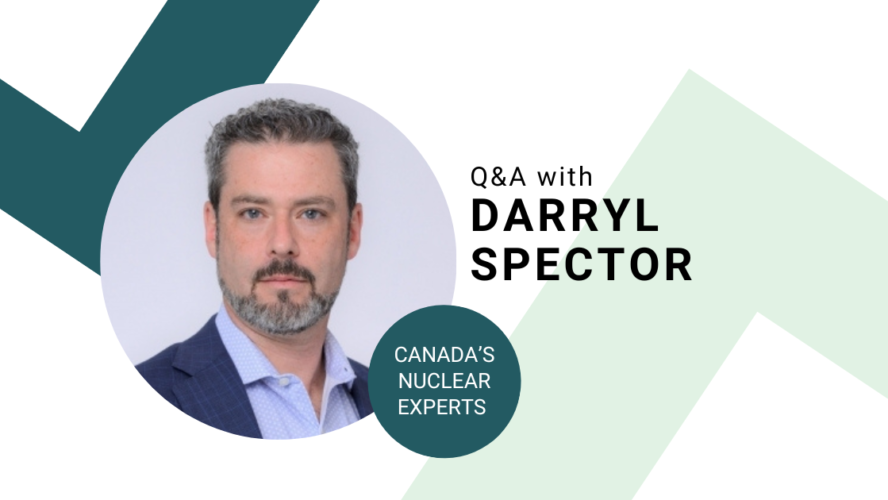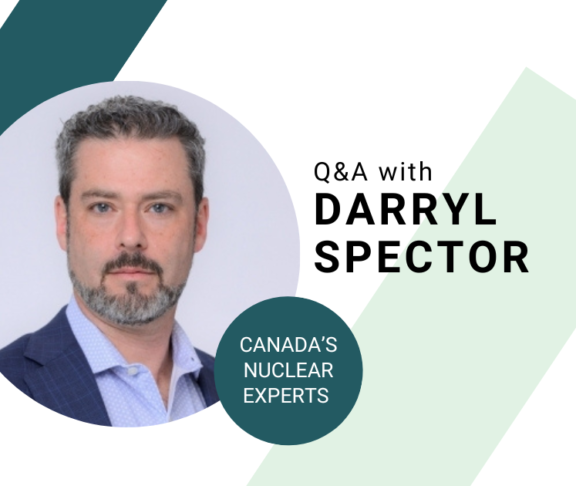
Darryl Spector
President, Promation and Board Chair, Skills Ontario
In an interview with Mediaplanet, Darryl Spector, President of Promation, discusses the applications of nuclear energy in the health-care and energy sectors.

What sparked your interest in nuclear, and what has your experience working in the industry been like?
When Promation was approached to do work for refurbishment in the nuclear space, we were in the automotive world, and I thought, why are they coming to us? We’re not nuclear physicists or PhD’s — we’re automation and robotics people.
As we learned about the opportunity, it was very apparent just how relevant our skill sets and experiences around automation, tooling, and custom machinery were to the nuclear industry. We brought something new, unique, and disruptive, and I would argue it was even more relevant to those specific refurbishment needs because it relied on custom machinery and custom automation expertise. That brought a disruptive element to the industry because, traditionally, only big players kept doing the same thing.
Initially, coming into the Nuclear industry from the outside, I thought that the world of nuclear energy and power generation would be very intimidating — I’ve since come to learn over my years of experience that it’s a lot more accessible, interesting, and easier to understand than I initially figured.

Innovations in Canada’s nuclear industry are benefiting various sectors, such as health care and energy. Can you tell us about the new technologies you’re most excited about?
The first that comes to mind is small modular reactors (SMRs). The exciting thing about SMRs is that there are a number of players in the SMR space, and it’s been a bit of a horse race to see which players can get there first. SMR technology is great in terms of accessibility because now we’re seeing secondary and tertiary applications for SMRs beyond primary power utility baseload. For example, a 10-megawatt SMR can be used in remote facilities, allowing remote communities to have a green, low-carbon energy supply solution for powering large-scale operations in remote sites, mining, processing, and so on.
Another groundbreaking innovation that comes to mind is the recent entry of nuclear players into large-scale medical isotope facilitation. Countless medical devices worldwide have been sterilized with Cobalt-60, produced and harvested in Ontario at both OPG’s and Bruce Power’s facilities.
We’re seeing a broader benefit of our strong nuclear industrial supply base, who are collaborating with pharmaceutical innovators and partnering with nuclear energy power producers to design, develop, manufacture, and install systems that will allow for large-scale harvesting and processing of medical isotopes, saving tens of thousands of lives. Canada really wants to become a leader in the medical isotope space globally, and we’re well-positioned to do so.

What do you see as a risk for Canadians if we don’t embrace nuclear power as a large-scale source of energy supply?
We’re seeing increased demand and reliance on carbon-based energy
sources like gas turbines. We’re not going to hit our targets — we know that. And it’s not just energy that drives that — there are a number of factors. One of them is energy, and we don’t have enough low-carbon or no-carbon sources. That’s one side of it, but there’s also energy availability. If you look at the IESO’s Annual Planning Outlook, there’s some uncertainty about how we will fill our increasing energy gaps. Ontario wants to be a leader in electric vehicle manufacturing, and Canada wants to commit to that as well, but the fact is, those also require energy that we may not have available.
If we don’t start to embrace nuclear as an option, then we’re going to have to increase our demand for a carbon-based energy supply. However, if that happens, we will be losing global investments critical to economic viability.

Where do you see Canada’s nuclear industry headed?
There’s finally been a global acknowledgement that we need nuclear as a key element for satisfying energy demand and supply as we move away from carbon-based energy. Federally, we’re finally seeing Canada acknowledging the importance of nuclear in the mix when there were years of hesitation before. Nuclear, now being acknowledged as a green technology when previously it was excluded from the green taxonomy and lumped in with nicotine, tobacco, and weapons, shows that a shift is gradually happening.
On the regulatory side, the Canadian Nuclear Safety Commission (CNSC) has established a framework that’s a lot more facilitating and accommodating of establishing SMRs. SMRs aren’t the same as large-scale power reactors, and you shouldn’t necessarily have the same regulatory framework for SMRs. Great things have been done recently, but Canadians are going to have to start listening to the fact that climate change is real, and we need to do something about it, which can start with embracing nuclear.

In your opinion, what’s a barrier to the broader adoption of nuclear?
Social license is a large barrier to the broader adoption of nuclear, but this has changed a lot in the past 10 years. The science is being more understood, and the considerations of being able to indulge ideological differences are waning. Interest in the science and research and acknowledging that everything has risks helps break down this barrier. If you’re looking for a zero-risk solution, then our only option is to stop consuming energy, which is not an option.
It’s important to look at a combination of severity and likelihood of frequency. Although the severity might be extremely high, if the likelihood of frequency and occurrence is next to zero, then how legitimate is that risk? The actual risk of not adopting nuclear invokes many other issues. Climate change is real, and it’s happening right now.
Canadians need to understand the science. No industry has as much control over the whole life cycle of the assets and the fuel itself. Some people think there’s no long-term solution for nuclear waste, and that’s not necessarily true. If you don’t have waste, then you don’t have nuclear, and if you don’t have nuclear, then what do you do? There are proven geologically stable repository reserves to store that waste. So is it that there’s no waste? No. But there’s a proven and vetted solution to manage that waste.

Why do you believe all Canadians should embrace nuclear power?
Canadians should embrace nuclear power because there’s no pervasive, large-scale, reliable, and baseload solution that works in Canada.


